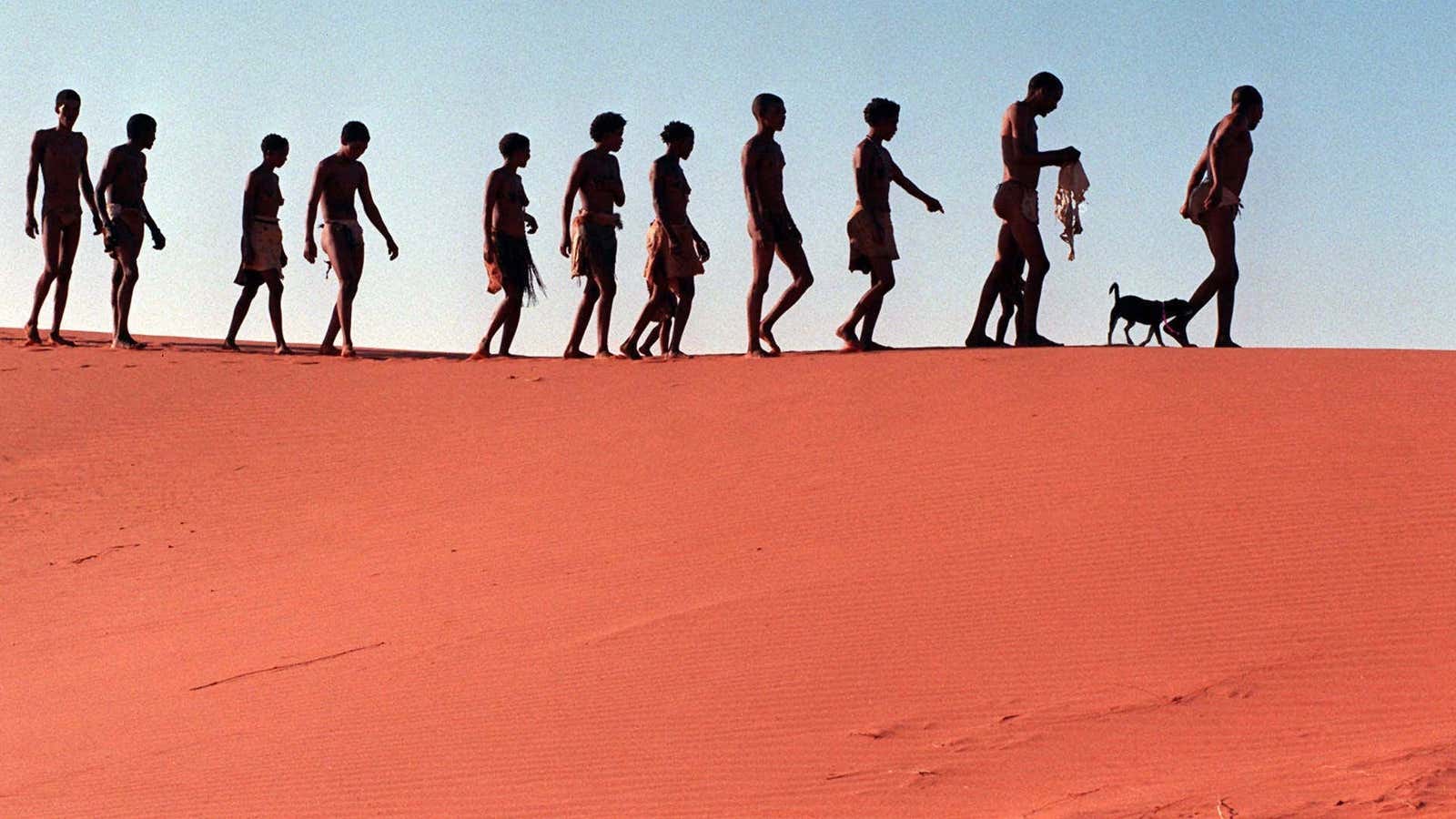The most enduring popular image of the San people is from the film The Gods Must Be Crazy, a 1980s comedy brimming with slapstick and insult.
For centuries the San, also controversially called the Bushmen, have been studied, measured, photographed and exploited. The traditional knowledge and culture of the world’s oldest population of humans has fascinated scientists, with little benefit to San themselves. They’ve finally had enough.
The South African San Council launched a code of ethics to prevent intrusive and exploitative research in their communities. Launched in Cape Town earlier this month, the code was established in collaboration with the Trust Project, a global organization trying to empower vulnerable communities to protect themselves from double standards in the research fraternity.
“They don’t all respect personal boundaries,” council director Leana Snyders said of the recent “influx” of researchers. “They don’t think they need to respect us.”
In southern Africa for thousands of years, the San have barely survived the last few centuries thanks to a colonial invasion of their land, an 18th century smallpox epidemic, and relentless modernization. There has been increasing pushback at intrusive and unethical researchers.
The code is about taking back control over the research, Snyders told the Ground Up news agency. The code is based on an understanding of respect, honesty, justice and care. The council also plans to establish a review panel of local San, along with a few experts, to vet research proposals.
The San’s knowledge of the natural environment has been exploited for decades, most recently with the weight-loss fad surrounding Hoodia, an appetite-suppressing herb. San hunter-gatherers would share their knowledge of medicinal plants with researchers, “yet my forefathers died in poverty,” said one man at the launch.
The new code of ethics hopes to stop that by demanding that any traditional knowledge used for commercial gain in the food, pharmaceutical or cosmetic industries must benefit communities in South Africa.
The ethical code was drawn up by three San communities in the Kalahari desert, the Khomani, the !Xun and the Khwe, but could be used as a blueprint for other indigenous groups in the region. In recent years, a genetic researcher published pejorative findings of a San community in neighboring Namibia after getting broad consent from the elderly people he tested, a lawyer for the group said.
Many of the San live in impoverished conditions, in towns with little prospects. The code also requires researchers to work with young San, transferring skills and providing work experience that will go beyond a research paper.




